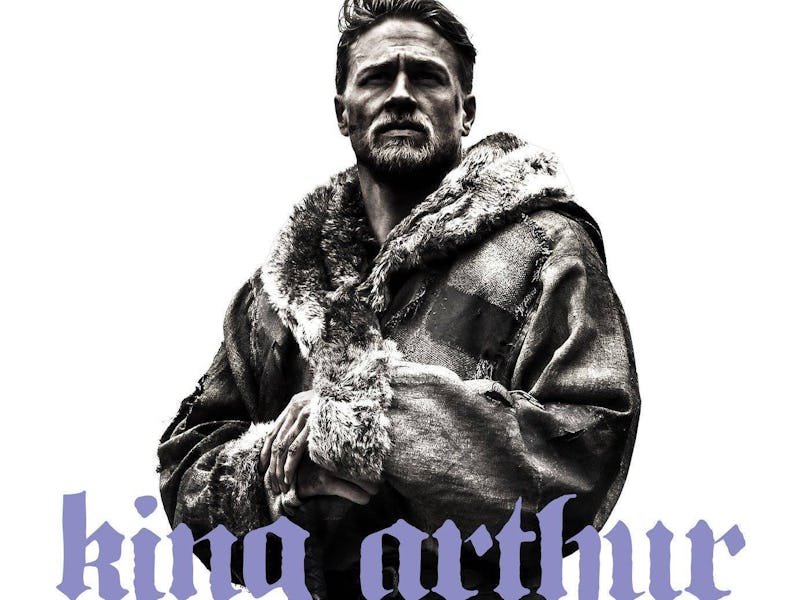Why the King Arthur Story Is Having a Sudden Resurgence
Between 'King Arthur: Legend of the Sword' and a new police procedural show, the King is everywhere lately. Why now?

The King Arthur story is oddly prevalent lately. Next year, it will appear on the big screen in a movie that looks gloriously insane — Guy Ritchie’s King Arthur: Legend of the Sword, starring Charlie Hunnam and about half the Game of Thrones cast. The same story will also appear in Fox’s Camelot, which reimagines the tale as a modern police procedural starring the titular character as a graffiti artist named “Art”. Yes, really.
As a trend, its resurgence is a bit baffling. We know that shows like Preacher and American Gods and Westworld are signifying a turn for fantasy — the medieval-esque knights-and-castles pastiche that Game of Thrones and its ilk offer has been exhausted and the genre is now taking a modern turn. That makes sense.
But what relevance could a centuries-old tale about a reluctant king and a love triangle have today? There are plenty of reluctant kings elsewhere in pop culture, from Aragorn to Jon Snow. As for love triangles, just turn on any show on the CW and you’ll see. So why this sudden return to King Arthur?
Pop culture trends operate in waves. Vampires were big in the early aughts, and then we got tired of them, leaving them in the coffin for the time being. Game of Thrones is big, but that too shall pass in just a handful of years, give or take an inevitable spinoff.
The past few years in pop culture have been dominated by the age of antiheroes: Walter White, Don Draper, Christian Bale’s morose Batman, Ben Affleck’s even more morose Batfleck. Post-9/11, believing in pure heroes seems like too much of a stretch, even in fantasy worlds. But as the real world has gotten seemingly crazier with each passing month, we’re taking another turn: We’re ready to embrace a mother-effing hero again.
Now, the term mother-effing is key here, because both these stories are putting a spin on King Arthur’s traditional chivalric romance roots. The tagline of Guy Ritchie’s movie is — for no reason other than the fact that it is a Guy Ritchie movie — “Raised on the streets. Born to be king.” The Charlie Hunnam Arthur also says things like “me and the lads take care of business,” partakes in medieval fight clubs, and wears this fly coat. Because why the hell not?
Much of it doesn’t fit with the rather square guy we know as King Arthur — kindly, chivalrous, virtuous — but the film is choosing to present its own spin on the King Arthur story. The upcoming police procedural show Camelot works the same way: It’s a wild departure from the Knights of the Round Table story you’re familiar with. The show’s promotional language says as much:
When an ancient magic reawakens in modern-day Manhattan, a graffiti artist named Art must team with his best friend Lance and his ex, Gwen — an idealistic cop — in order to realize his destiny and fight back against the evil forces that threaten the city.
That sounds objectively hilarious, and like Guy Ritchie’s movie, it’s different enough from King Arthur that it could just as easily have coined its hero with a different name. But both productions will dip into the Arthurian narrative, because no matter how you twist the tale, it’s steeped in the cultural touchstone of the quintessential hero.
Pop culture, it would seem, is moving out of the age of antiheroes and embracing traditional heroes once more. If that’s our destiny, then it might as well be a mother-effing hero, straightforward in his objective and operating in terms we can digest in our escapism.